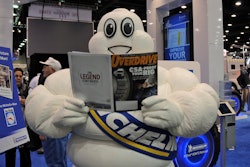If you want to avoid the most common mistakes I see with owner-operator tax returns, you need to get involved in checking the major numbers your tax preparer is using. Doing this can save 
Here’s the worst mistake I uncovered in a tax review this year. Though the return had been prepared by a trucking specialist, the husband-wife team had a feeling something wasn’t right and questioned the preparer about it repeatedly.
The couple had shown a net operating loss on their Schedule C for seven years. The only reason I’ve ever seen for a net operating loss is high depreciation. The problem with their most recent tax return was that there was less than $1,500 in depreciation.
The preparer, following settlement sheets that separated mileage pay from fuel surcharge pay, was including only mileage revenues in the gross numbers. Fuel surcharge payments were listed under “reimbursements,” which is not standard accounting practice.
So gross revenue was less than $100,000 each year, even though the per diem showed more than 250 days on the road each year. This is an absolute giveaway that the gross revenue is incorrect.

This mistake resulted in under-reporting income by $20,000 to $40,000 per year for seven years. Tax was underpaid by $3,500 to $7,000 per year. With interest and penalties, the liability could be as high as $75,000.
Here’s what you can do to avoid such situations:
SPOT CHECK YOUR 1099 TOTAL. Most leased owner-operators make around $1.20 per mile with the fuel surcharge included. The number of dollars on your 1099 should be significantly higher than the number of miles you ran during the year. If they’re similar, it’s close to $1 a mile, indicating missing surcharge revenue.
VERIFY THE ACCURACY OF THE 1099 AMOUNT. Having established that amount is reasonable, go further. A relatively small mistake – say, $5,000 – wouldn’t jump out, yet you would pay $1,000 in tax you didn’t owe. Verify the amount by adding each settlement to determine your 1099 revenue.
CHECK AT LEAST THESE THREE EXPENSES:

• Maintenance. See how your big expenses add up. If you know you had one $8,000 repair, for example, and total maintenance is just over $10,000, there’s probably a mistake.
 Fuel, maintenance and per diem are three major cost categories for which you should do a rough estimate to double-check your accountant.
Fuel, maintenance and per diem are three major cost categories for which you should do a rough estimate to double-check your accountant.• Per diem. Look at your Schedule C for meals and entertainment. Take the total number of nights away from home and multiply it by $59. Then multiply that number by 0.8. That should be your total deductible per diem.
If you find mistakes or red flags on one of these categories, continue checking the entries, from largest dollar amount to smallest. If amounts in these three are correct, odds are the tax return has been prepared correctly.
Free check on your tax data
If you want to e-mail me (https://letstruck.com/) a pdf or jpeg copy of your settlement to verify the accuracy of the 1099 amount, I will post on our new solutions website a step-by-step guide for how to account for each line of the settlement. Personal data will be deleted before posting. View an example at www.mygauges.com. You can also use that e-mail address for a free second opinion on any tax return.
Kevin Rutherford is an accountant, small-fleet owner and the host of “Trucking Business & Beyond,” which airs on Sirius XM Radio’s Road Dog Trucking Radio. Contact Rutherford through his website, LetsTruck.com.








